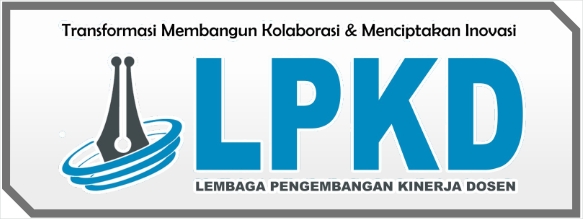Deep Learning Principles in Nahdlatul Wathan Madrasah Curriculum (1934–1997): A Historical Perspective
DOI:
https://doi.org/10.62238/chatra.v3i2.187Keywords:
deep learning, Islamic education, madrasah curriculum, nahdlatul wathanAbstract
Purpose – This study investigates how the curriculum of Madrasah Nahdlatul Wathan (NW) from 1934 to 1997 embodied pedagogical principles aligned with modern deep learning theories. It aims to demonstrate the potential of traditional Islamic education to contribute to the design of context-based, value-oriented curricula for contemporary madrasahs.
Design/methods/approach – A qualitative historical-descriptive method was employed. The research analyzed curriculum documents, teaching materials, and visual archives, alongside semi-structured interviews with NW teachers and alumni. Data were examined through content and thematic analysis, supplemented by quantitative assessment of deep learning indicators across educational levels.
Findings – The findings reveal that NW’s curriculum promoted deep understanding, independent learning, social collaboration, and strong spiritual values. These principles were reflected in practices like halaqah discussions, critical text interpretation, public speaking exercises, and community engagement. Quantitative analysis showed an upward trend in deep learning principles from the elementary to the senior levels, with consistently high spiritual integration. Although developed decades ago, NW’s model parallels modern educational goals and offers insight for integrating traditional pedagogy with digital innovations such as AI-driven learning tools.
Research implications/limitations – The study suggests traditional Islamic education provides rich models for developing transformative, value-based curricula. Challenges include limited archival data and reliance on retrospective interviews. Further research should explore practical frameworks for combining heritage-based pedagogies with modern technological tools.
References
Anwar, S., Ishomuddin, I., & Faridi, F. (2023). Dynamics of the Islamic Education Curriculum in Madrasah: Study K-13 and Merdeka Curriculum. JIE (Journal of Islamic Education), 8(2), 266–282. https://doi.org/10.52615/jie.v8i2.365
Asbari, M. (2024). Kurikulum Madrasah Diniyah Takmiliyah: Membangun Sikap Beragama Inklusif. Jurnal Manajemen Pendidikan. https://doi.org/10.70508/literaksi.v2i02.725
Azra, A. (1998). Esei-esei Intelektual Muslim Pendidikan Islam. PT Logos Wacana Ilmu.
Azra, H. (2018). Islamic Education in Indonesia (pp. 763–780). https://doi.org/10.1007/978-3-319-64683-1_32
Biggs, J., & Tang, C. (2011). Teaching For Quality Learning At University. McGraw-Hill Education. https://books.google.co.id/books?id=XhjRBrDAESkC
Bowen, G. A. (2009). Document Analysis as a Qualitative Research Method (Vol. 9). https://doi.org/10.3316/QRJ0902027
Braun, V., & Clarke, V. (2019). Reflecting on reflexive thematic analysis. Qualitative Research in Sport, Exercise and Health, 11(4), 589–597. https://doi.org/10.1080/2159676X.2019.1628806
Creswell, J. W. , & P. C. N. (2018). Qualitative Inquiry and Research Design: Choosing Among Five Approaches. SAGE Publications.
Elhassani, M. E., Maisonnasse, L., Olgiati, A., Jerome, R., Rehali, M., Duroux, P., Giudicelli, V., & Kossida, S. (2022). Deep Learning concepts for genomics : an overview. EMBnet.Journal, 27. https://doi.org/10.14806/ej.27.0.990
Haddade, H., Nur, A., Mustami, Muh. K., & Achruh, A. (2023). Technology-based learning strategies in Digital Madrasah Program. Cypriot Journal of Educational Sciences, 18(1), 55–70. https://doi.org/10.18844/cjes.v18i1.8179
Haidir, H., Joharis, J., Salim, S., & Zairina, N. (2021). Development of Learning Models in Madrasah in Minority Islamic Area. 10(02). https://doi.org/10.30868/EI.V10I02.1662
Hazyimara, K. (2024). A New Paradigm of Madrasah Learning in the Implementation of Merdeka Curriculum. Jurnal Penelitian Pendidikan Islam. https://doi.org/10.36667/jppi.v11i2.1676
Hollweck, T. (2015). Robert K. Yin. (2014). Case Study Research Design and Methods (5th ed.). Canadian Journal of Program Evaluation, 30(1), 108–110. https://doi.org/10.3138/cjpe.30.1.108
Ismaya, N., Ratnawati, R., & Ristianti, D. H. (2020). NILAI-NILAI PENDIDIKAN ISLAM DALAM TRADISI KENDUREI DULANG PAT. Andragogi: Jurnal Pendidikan Islam Dan Manajemen Pendidikan Islam, 2(3), 80–98. https://doi.org/10.36671/andragogi.v2i3.103
Janiesch, C., Zschech, P., & Heinrich, K. (2021). Machine learning and deep learning. ArXiv: Artificial Intelligence. https://doi.org/10.1007/S12525-021-00475-2
Kharozim, M. A. (n.d.). STEAM Learning Model in Madrasah Ibtidaiyah. https://doi.org/10.55210/elementary.v2i2.445
Kovac, V. B., Nome, D. Ø., & Jensen, A. R. (2023). The why, what and how of deep learning: critical analysis and additional concerns. Education Inquiry, 1–17. https://doi.org/10.1080/20004508.2023.2194502
Krippendorff, K. (2013). Content Analysis: An Introduction to Its Methodology. Sage Publications.
Marduati, M., Mawardi, M., W, A. S., & Faizurrahman, S. (2024). Cultural Heritage Sites as Learning Resources: Innovations in the Madrasah Operational Curriculum (KOM) at Madrasah Ibtidaiyah. Pionir : Jurnal Pendidikan, 13(3), 184. https://doi.org/10.22373/pjp.v13i3.25871
Marton, F., & Saljo, R. (1976). ON QUALITATIVE DIFFERENCES IN LEARNING: I—OUTCOME AND PROCESS*. British Journal of Educational Psychology, 46(1), 4–11. https://doi.org/10.1111/j.2044-8279.1976.tb02980.x
Mohan, V. V, Prakash, P., & Resmi, K. R. (2022). A Survey on Deep Learning Concepts and Techniques. International Journal of Advanced Research in Science, Communication and Technology, 20–27. https://doi.org/10.48175/ijarsct-4903
Patton, M. Q. (2015). Qualitative Research & Evaluation Methods: Integrating Theory and Practice. SAGE Publications.
Putra, M. I., Neliwati, N., Azmar, A., & Azhar, A. (2022). An Analysis of Madrasah Curriculum and Its Implementation in Basic Education Institutions. Jurnal Basicedu, 6(6), 9565–9572. https://doi.org/10.31004/basicedu.v6i6.4102
Quran Recitation Recognition using End-to-End Deep Learning. (2023). https://doi.org/10.48550/arxiv.2305.07034
Rovi’i, A., Ahid, N., Musafak, M. A., & Kurniadi, Y. (2023). Madrasah curriculum development. Educenter Jurnal Ilmiah Pendidikan, 2(2), 242–251. https://doi.org/10.55904/educenter.v2i2.768
Ruly Nadian Sari, & Ulfah Umurohmi. (2025). Nilai-Nilai Pendidikan Islam dalam Pembentukan Karakter Anak menurut Pandangan Abdullah Nashih Ulwan. Chatra: Jurnal Pendidikan Dan Pengajaran, 3(1), 20–26. https://doi.org/10.62238/chatra.v3i1.181
Santosa, S. (2022). The Digital Madrasah as an Idea of IT-Based Islamic Education. Nazhruna, 5(2), 379–391. https://doi.org/10.31538/nzh.v5i2.2121
Shodikin, E. N., Ramadhan, R. N., Hidayat, N., & Maftuch, F. (2024). Implementation of madrasa curriculum based on islamic boarding school at al i’tisham wonosari. Deleted Journal, 91–98. https://doi.org/10.59944/jipsi.v3i3.330
Sutaryono, M. (2023). IMPLEMENTASI APLIKASI E-LEARNING MADRASAH DALAM MENINGKATKAN EFEKTIVITAS DAN HASIL BELAJAR PADA MASA PANDEMI COVID 19 DI MTsN 20 JAKARTA TIMUR. Secondary, 3(1), 38–46. https://doi.org/10.51878/secondary.v3i1.1944
Tan, F. G., Yüksel, A. S., Aydemir, E., & Ersoy, M. (2021). Derin Öğrenme Teknikleri İle Nesne Tespiti Ve Takibi Üzerine Bir İnceleme. 25, 159–171. https://doi.org/10.31590/EJOSAT.878552
Wong, Y. K. (2021). Understanding the Features of Deep Learning. In viXra.
Wulandari, D., Mutmainah, S., Prastyo, H., Fauziah, S. F., Fachmi, T., Sundari, E., & Mubarok, H. (2022). STREAM DigLIM: Learning Innovation in Madrasah to Develop Students’ Literacy. Advances in Social Science, Education and Humanities Research. https://doi.org/10.2991/assehr.k.220104.021
Downloads
Published
Issue
Section
License
Copyright (c) 2025 Herman Zuhdi (Author)

This work is licensed under a Creative Commons Attribution-ShareAlike 4.0 International License.













